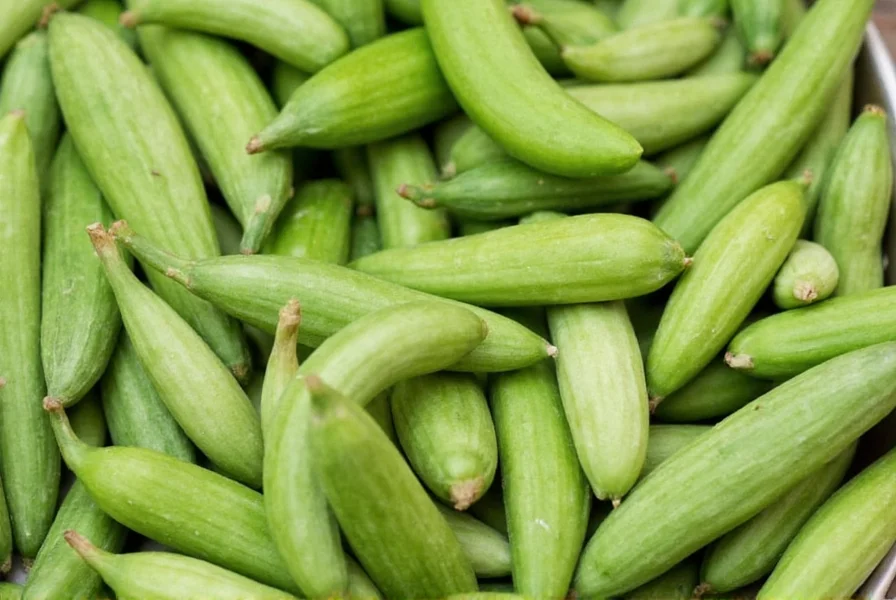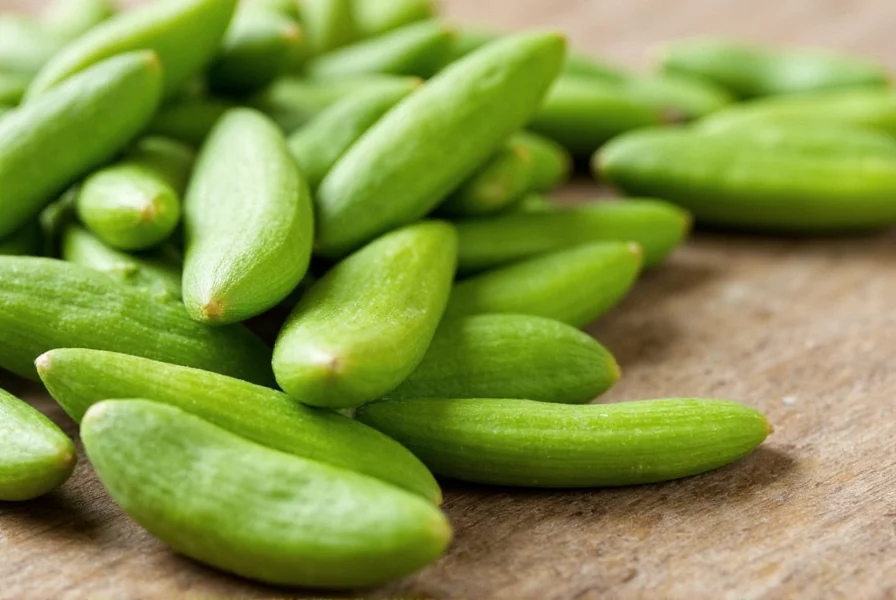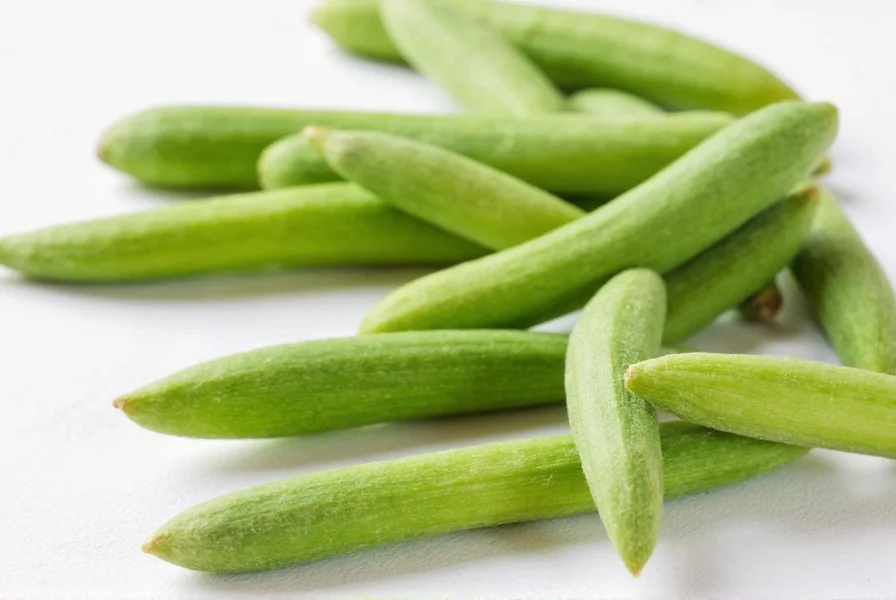Cardamom, one of the world's most ancient and expensive spices, has been used for centuries in traditional medicine systems across Asia and the Middle East. Today, modern science is beginning to validate many of these traditional uses while uncovering new potential health benefits. This comprehensive guide examines what current research tells us about cardamom's effects on human health.
Nutritional Profile of Cardamom
Cardamom pods contain a complex array of bioactive compounds that contribute to its health properties. A single teaspoon (about 2 grams) of ground cardamom provides:
| Nutrient | Amount per Teaspoon | % Daily Value |
|---|---|---|
| Calories | 13 | 1% |
| Dietary Fiber | 0.9g | 3% |
| Vitamin C | 1.8mg | 2% |
| Calcium | 21mg | 2% |
| Magnesium | 10mg | 2% |
| Potassium | 41mg | 1% |
While these nutritional values seem modest, cardamom's true value lies in its rich concentration of phytochemicals including terpenes, flavonoids, and phenolic compounds that provide significant antioxidant activity.

Science-Backed Health Benefits of Cardamom
Powerful Antioxidant Properties
Cardamom ranks among the spices with the highest antioxidant capacity. Research published in the Journal of Agricultural and Food Chemistry found cardamom contains significant amounts of limonene, cineole, and other compounds that combat oxidative stress. These antioxidants help neutralize free radicals that contribute to chronic diseases and aging. One study demonstrated that cardamom extract showed higher antioxidant activity than many common fruits and vegetables when measured by ORAC (Oxygen Radical Absorbance Capacity) values.
Digestive Health Support
Traditional medicine systems have long used cardamom to address digestive issues, and contemporary research supports these applications. A clinical trial involving 100 participants with irritable bowel syndrome found that those who consumed cardamom extract experienced significant reductions in bloating, gas, and abdominal pain compared to the placebo group. The spice appears to stimulate digestive enzymes and relax gastrointestinal muscles, potentially explaining its traditional use for indigestion and nausea.
Cardiovascular Benefits
Several studies suggest cardamom may support heart health through multiple mechanisms. Research in animal models indicates cardamom supplementation can help lower blood pressure and improve lipid profiles. A human study published in the Indian Journal of Biochemistry & Biophysics followed 20 adults with stage 1 hypertension who consumed 3 grams of cardamom powder daily for 12 weeks. Participants showed an average 8.5 mmHg reduction in systolic blood pressure and 6.6 mmHg reduction in diastolic pressure, along with improved antioxidant status.
Blood Sugar Regulation
Emerging evidence suggests cardamom may help regulate blood glucose levels. In a study with diabetic rats, cardamom extract demonstrated significant hypoglycemic effects and improved insulin sensitivity. While human studies are limited, preliminary research shows promise for cardamom's potential role in managing type 2 diabetes. The spice appears to enhance glucose metabolism through multiple pathways, including increased insulin secretion and reduced insulin resistance.
Anti-Inflammatory Effects
Chronic inflammation underlies many modern diseases, and cardamom shows notable anti-inflammatory properties. Laboratory studies have demonstrated that cardamom extracts can inhibit key inflammatory markers including TNF-α, IL-6, and COX-2 enzymes. These effects may contribute to cardamom's potential benefits for conditions like arthritis and other inflammatory disorders.
Respiratory Health
Cardamom's traditional use for respiratory conditions finds support in modern research. The spice contains compounds that act as natural expectorants and bronchodilators. A study in the Journal of Ethnopharmacology found that cardamom extract helped relax tracheal smooth muscle, suggesting potential benefits for asthma and other respiratory conditions. The spice's antimicrobial properties may also help combat respiratory infections.
Potential Side Effects and Considerations
While cardamom is safe for most people when used as a culinary spice, certain considerations apply:
- Excessive consumption: Very high doses (beyond typical culinary use) may cause digestive upset in sensitive individuals
- Drug interactions: Cardamom may interact with blood thinners and diabetes medications due to its potential effects on blood clotting and glucose metabolism
- Gallstones: Those with gallstones should consult a healthcare provider before consuming large amounts, as cardamom may stimulate bile production
- Pregnancy: Culinary amounts are generally considered safe during pregnancy, but medicinal doses should be avoided without medical supervision
How to Incorporate Cardamom Into Your Diet
Maximizing cardamom's health benefits while enjoying its distinctive flavor can be achieved through these practical approaches:
- Add freshly ground cardamom to morning coffee or tea for enhanced flavor and potential metabolic benefits
- Use in baking as a healthier alternative to sugar-heavy flavorings
- Include in savory dishes like curries, rice pilafs, and roasted vegetables
- Make cardamom-infused water by steeping crushed pods in cold water overnight
- Combine with other beneficial spices like cinnamon and ginger in spice blends
For maximum potency, use whole cardamom pods and grind them just before use, as the volatile compounds responsible for many health benefits degrade over time in pre-ground spice.

Cardamom Compared to Other Spices
When evaluating whether cardamom is good for you compared to other spices, it holds its own among the healthiest options. While turmeric contains curcumin (known for powerful anti-inflammatory effects) and cinnamon shows strong blood sugar regulation properties, cardamom offers a unique combination of benefits:
- Higher antioxidant capacity than many common spices
- Broad-spectrum digestive benefits not found in most other spices
- Distinct respiratory health properties
- More versatile flavor profile suitable for both sweet and savory applications
A diverse spice regimen that includes cardamom alongside other beneficial spices likely provides the greatest health advantages through synergistic effects.
Conclusion: Is Cardamom Good for You?
The scientific evidence strongly supports that cardamom is good for you when consumed as part of a balanced diet. Its rich antioxidant profile, digestive benefits, and potential positive effects on cardiovascular health and blood sugar regulation make it a valuable addition to your spice cabinet. While not a miracle cure, regular culinary use of cardamom contributes to an overall healthy dietary pattern.
As with any food component, moderation is key. Using cardamom in typical culinary amounts (1/4 to 1/2 teaspoon daily) appears safe for most people and provides meaningful health benefits without risk. Those with specific health conditions or taking medications should consult healthcare providers about appropriate consumption levels.











 浙公网安备
33010002000092号
浙公网安备
33010002000092号 浙B2-20120091-4
浙B2-20120091-4